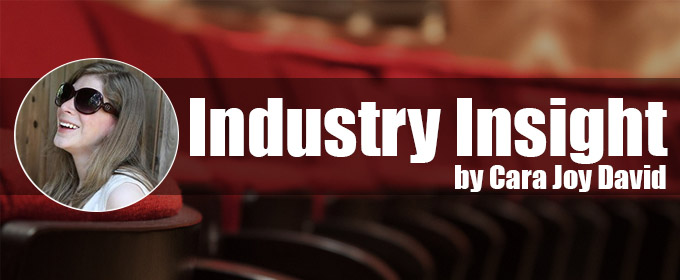Women Playwrights Speak Out on Life in the Theater: Part 1
Hear from Bess Wohl, Dominique Morisseau, Larissa FastHorse, Mfoniso Udofia, and many more.
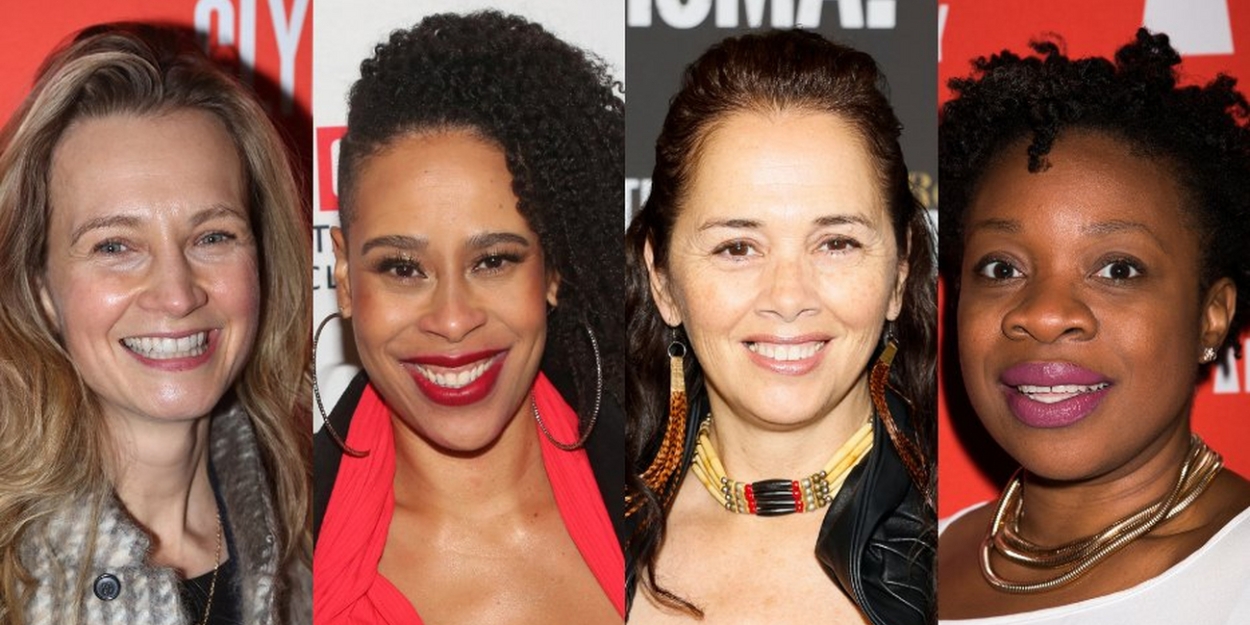
It's 2022. In the theater, the number of productions of plays by female playwrights is well above where it was at the start of the 21st century. Female playwrights have not reached parity with male playwrights, and post-pandemic detailed information is not yet available, but for the few seasons leading up to the pandemic, plays by women playwrights represented just under 40% of new plays produced in a large sampling of non-profits across the country. But it is not all sunshine and rainbows. For this three-part series, BroadwayWorld spoke to over 20 female playwrights who have been produced in major NY theaters about what life in the theater is really like for them -- and what can be done to make it better.
It was just over a year ago that Theresa Rebeck wrote an Opinion piece in The New York Times in which she stated: "If a racial reckoning is underway, the gender reckoning is still struggling." For, it was around that time that the prestigious Center Theater Group of Los Angeles announced a "diverse" season that included only one play by a woman out of ten. Because, despite all the attention that had been paid to the dearth of productions by women playwrights years earlier, gender diversity had fallen from the forefront of the conversation even before the pandemic hit. In 2019, when BroadwayWorld covered the lack of female playwrights on Broadway, we were one of the only major outlets to do so.
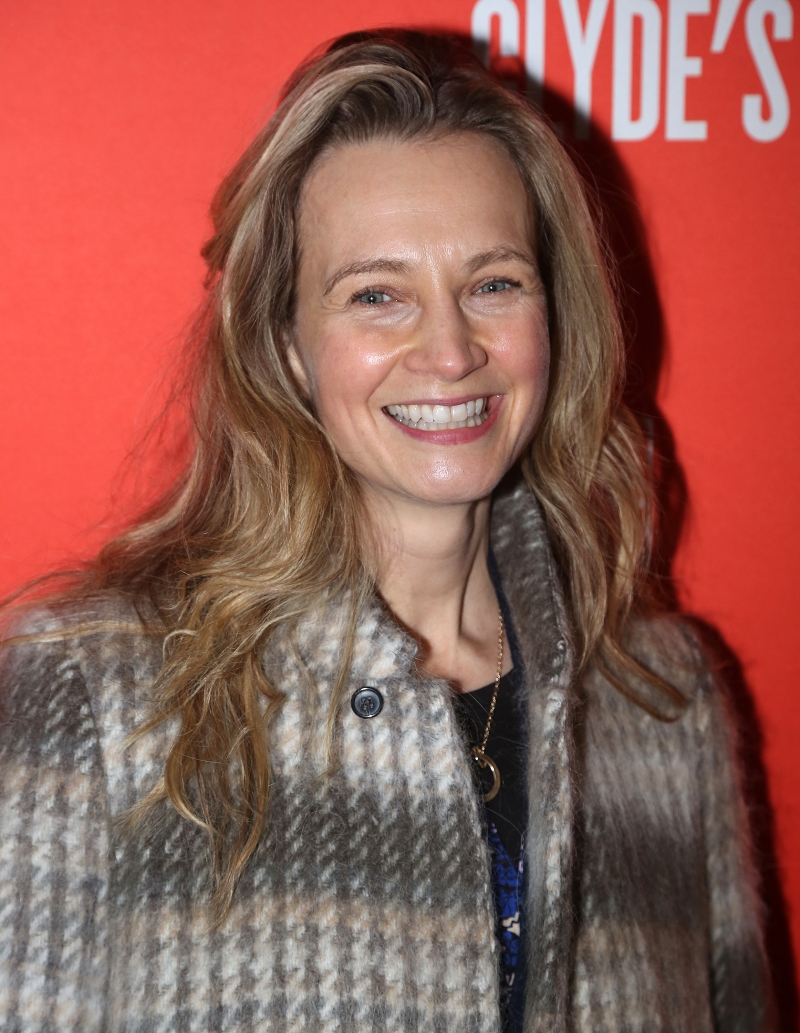 "When I had my Broadway debut in 2019, I was the only woman on Broadway with a fully original play," Tony nominee Bess Wohl, currently represented off-Broadway by CAMP SIEGFRIED at Second Stage, said. "I remember thinking: 'This is so crazy. The numbers are the way they are and no one is even talking about. It is not even a conversation. It's just accepted like the air.'"
"When I had my Broadway debut in 2019, I was the only woman on Broadway with a fully original play," Tony nominee Bess Wohl, currently represented off-Broadway by CAMP SIEGFRIED at Second Stage, said. "I remember thinking: 'This is so crazy. The numbers are the way they are and no one is even talking about. It is not even a conversation. It's just accepted like the air.'"
This was so despite the numbers for women playwrights nationwide, which had been going in the right direction. In 2006, a spotlight was shone on the lack of representation of female playwrights, and the numbers shot up the next season from 12.5% to 38.9%, according to Julia Jordan, a co-founder of The Lillys (along with Rebeck and Marsha Norman). The numbers then fell back down sharply after that season and further efforts were needed. Theater and film both had their own "50/50 in 2020" initiatives. And while they did not achieve their goals, they at least had made inroads. As had other theater efforts, namely The Lillys and The Count, a project (developed by The Lillys in partnership with The Dramatists Guild) that collects data about whose work is being produced nationwide and reports it in three-year intervals.
"When we started doing The Count, the first report [in 2015], we were down to 22%," Jordan, who co-conceived of The Count with Norman, said. "When we have seen surges, we realized they were all white women, and primarily white women who were younger."
The Lillys has therefore been focusing on women of color. It used to be that producers dismissed the lack of representation of women of color by saying that women of color simply didn't become playwrights. However, by showcasing not just production numbers but the number of women of color receiving B.A.s in both English Literature and the Performing Arts, The Count laid bare that it was not that women of color writers were not out there, it was that the theater community was failing them.
The numbers are all going in the right direction. Broadway has been slower than the rest of the country, and commercial theater even slower than that, but things are trending upward. Wohl said, three years after her Broadway debut, she believes "if there were one woman with an original play on Broadway now it would be noticed." (Older women are still underrepresented, having led the movement but not yet reaped the benefits. Honor Roll!, "an advocacy and action group of women+ playwrights over forty," seeks to remedy this, and Jordan said The Lillys will also be working with them.)
But it's not all about the numbers. "For myself as a woman, I do feel part of the wave of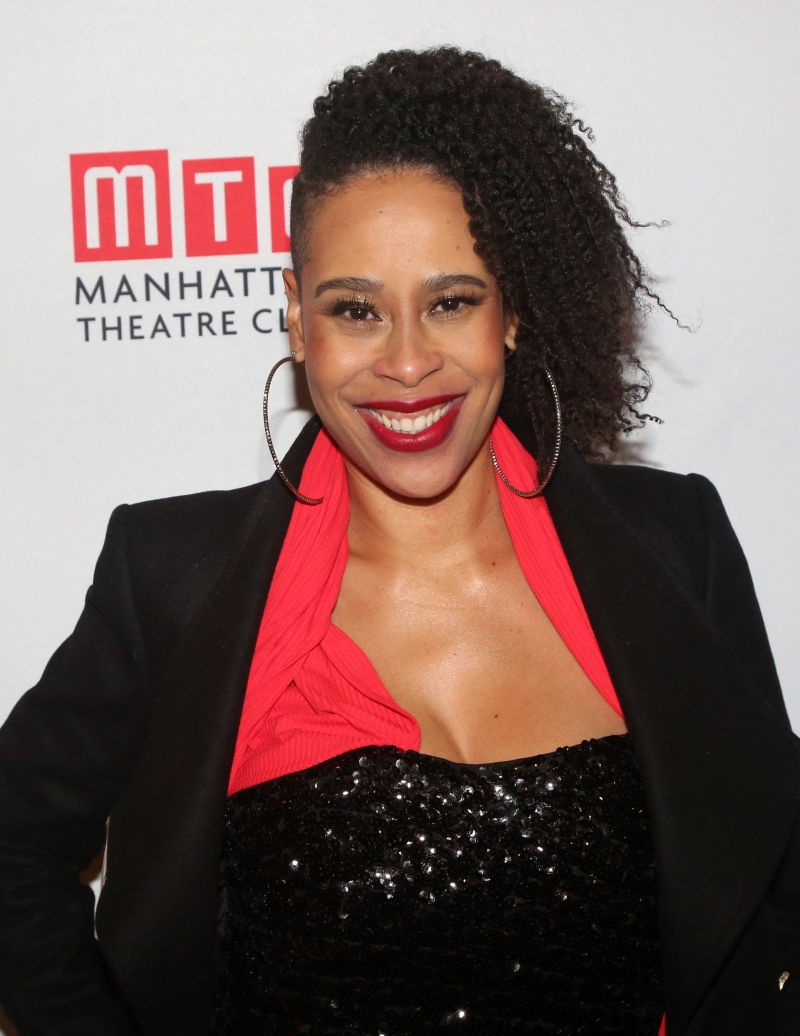 people wanting to center women's voices and black women's voices in particular," two-time Tony nominee Dominique Morisseau said. "I feel that there's definitely a visibility on us right now. I also don't think that that changes the dynamic of how we're treated inside of those spaces. We might be on stages, but how we treated around the institution? Are our voices listened to and respected? Are we our ideas heard? Are we trusted?"
people wanting to center women's voices and black women's voices in particular," two-time Tony nominee Dominique Morisseau said. "I feel that there's definitely a visibility on us right now. I also don't think that that changes the dynamic of how we're treated inside of those spaces. We might be on stages, but how we treated around the institution? Are our voices listened to and respected? Are we our ideas heard? Are we trusted?"
In that way, theater echoes other spaces. In her song "Bullpen," Dessa sings about the rap world: "And I love this job, but ah, good god/Sometimes I hate this business/It's all love backstage but then the boys get brave/Gotta say, I hope your mother doesn't listen." And many playwrights contacted for this piece might say similar. (Some would only speak on the condition of anonymity for fear of developing a bad reputation.) They told stories about names they have been called behind-the-scenes -- "bitch," "c*nt," "diva" and more -- even in recent years, when one would hope those monikers would be taboo.
"I look at the way male playwrights are allowed to express themselves -- things that I hear them say in the room that if I said, I'd be called 'difficult,' which I have been called many times," said Larissa FastHorse, who will be the first self-identifying Native American woman ever to be represented on Broadway when THE THANKSGIVING PLAY bows in the Spring. "I've been called 'too hard to work with,' all of those things. I'm working on several projects with groups of playwrights and there are men in the groups and stuff they can get away with saying I could never say."
The playwrights interviewed have also spoken about something more insidious -- the questioning of their right to do the work they do. That mansplaining so prevalent in society but with a little extra sting when it is the questioning of your own art, questioning that men do not usually receive when seeing their visions through.
"I'm in a unique position because I'm married to a male playwright, so I can kind of look over like: 'Hey, are you having the same experience that I'm having,'" Rehana Lew Mirza, whose plays include HATEF**K, explained. "I've noticed that he's having different experiences. I've noticed that there is a lot of pushback that I get when developing new work -- almost like a distrust that I know what I'm doing or talking about. I've written a play where I go back-and-forth in time between the Trump election and 9/11 and -- even though I was living in the West Village at the time of 9/11 -- I've had people explain to me what happened on 9/11 each and every time I've worked on the play."
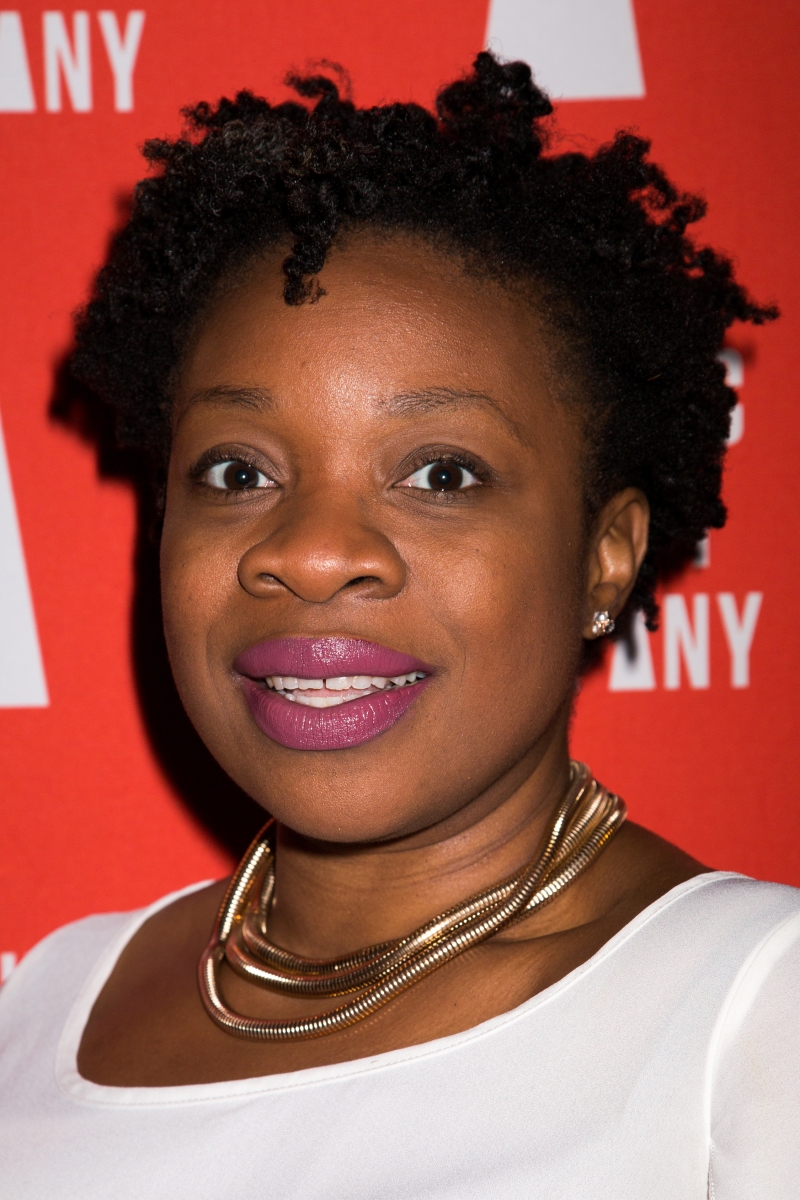 Mfoniso Udofia, best known for writing the "Ufot Cycle," a nine-play cycle focusing on one Nigerian family, similarly discussed being challenged by men over her own expression.
Mfoniso Udofia, best known for writing the "Ufot Cycle," a nine-play cycle focusing on one Nigerian family, similarly discussed being challenged by men over her own expression.
"I've had a lot of questions launched at me about why I do what I do," Udofia explained. "At every point, I am ready to answer the question about why myself is doing what myself is doing, while looking over and watching another playwright who is playing in the same kind of way, who doesn't get those questions. A lot of the times I feel like men are questioned less. As a black Nigerian woman, I have leaders that are screaming at me, 'But why?'"
Some playwrights interviewed discussed the women who are succeeding with an eye toward how they fit within the patriarchal structure. The sense that a few (though certainly not all) of these women have prospered because they and/or their work fit within a set construct.
"[There is a woman playwright] that writes plays that I think men don't find challenging," said Halley Feiffer, who has had a handful of plays run off-Broadway. "She doesn't use a lot of profanity. She often explores historical figures. So she's allowed in the club, but anyone who remotely makes men uncomfortable by portraying women in a way that challenges the status quo, i.e., women who actually have libidos and opinions that might make men uncomfortable, it has to be oppressed. We've got to do something about that, and I don't know what it is."
Feiffer is one of several women who discussed how the ineffable feeling of being "different" is tied to the content of their plays; that it is not solely the body they inhabit, but that their plays focus on complex women. Wohl noted that "treating a female as a full human being still feels like a radical act." Another playwright said she was just recently told her in-development play, focusing on a flawed 25-year-old heroine, was "like chick lit onstage," from a producer who likely used that same phrase in the 1990s (and was producing then).
With producers still predominantly male, they program to their own tastes to a certain extent. That is true despite ticket buyers being predominantly women. There is the logical economic argument of "for your sales you should focus on women" but sometimes that takes a back seat to the idea that plays about men are seen as more important, just as men are seen as more important in society.
Now there is a built-in reaction to dismiss much of this in 2022 -- to think it is all part of an illusory persecution narrative. After all, in the last five years, the Pulitzer Prize for Drama has been awarded to women three times. And some point to it occasionally seeming easier for women, who are sometimes the focus of more advance press. The playwrights spoken to for this piece did not deny this. There are certainly times when members of various minority groups can hit what one playwright termed "a shame producing cycle" just right and use it to their advantage.
"With the waves of awareness and activism in our field, I think being a female sometimes is helpful, and then sometimes it's not," said FastHorse. "Being Native American sometimes is helpful, sometimes it's not. When I was younger, being an attractive, light-skinned, stylish woman got me into rooms that I wouldn't have been in just based on my writing. It's a sucky advantage, but it's the game I inherited. If it helps I'll go ahead and I'll dress nicely when I go into the room."
helpful, and then sometimes it's not," said FastHorse. "Being Native American sometimes is helpful, sometimes it's not. When I was younger, being an attractive, light-skinned, stylish woman got me into rooms that I wouldn't have been in just based on my writing. It's a sucky advantage, but it's the game I inherited. If it helps I'll go ahead and I'll dress nicely when I go into the room."
But the surface narrative that women may be receiving more attention at any given time does not tell the whole story. Yes, in the last five years, three women have won the Pulitzer. But none received a commercial Broadway production of their winning work, only a winning man received that. In fact, between 2010 and today, Lynn Nottage's SWEAT is the only Pulitzer winner by a woman to receive a commercial production on the Great White Way. Whereas five of the winners by men have been mounted as commercial Broadway productions.
The news is not all bad however. Not all women feel they have been adversely impacted by their sex. Playwrights contacted who are 30 or under have mostly felt supported in their careers thus far, thanks partially to women in artistic positions at non-profits.
"I think the challenges I've been faced within the industry, I don't think that they're gender-based challenges," Alexis Scheer, whose play OUR DEAR DEAD DRUG LORD ran off-Broadway in 2019, said. Scheer explained the Latinx community really "raised the play up" before it hit New York. In New York, she worked with two women-led non-profits, WP Theater and Second Stage, on DRUG LORD, an experience that led to other commissions.
"The people I meet with in those rooms are often other women in lit departments and stuff like that," Scheer stated. "I definitely feel lucky. I feel like I'm that age where I've benefited from all the good work that everyone who has come before me has put in."
Please read Part II of this series, which focuses on the critical gaze.
Authors note: None of these issues are easy issues, particularly in the world of intersectionality, in which multiple factors (sex, gender, race, religion, appearance and more) factor into how you are treated. There are some who tried to convince me to focus solely on numbers. However, I think the more voices we hear from -- actual voices, beyond check marks on a sheet -- the better off we are. Feel free to reach out to me at cara@broadwayworld.com if you would like to discuss any of the topics raised in this piece. While thus far the story has only featured playwrights who have had major productions in New York, and is limited in that way, I'm open to hearing from a wider range of perspectives.
Videos

